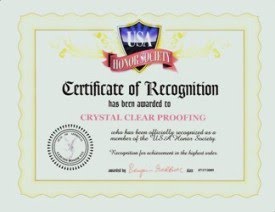The confusion between these two words comes mainly from the fact that affecting something leads to an effect.
For example, "how were you affected," and "what was the effect on you?" mean almost exactly the same thing.
Her statement affected the way I felt about that topic.
Her statement effectively changed the way I felt about that topic.
*To affect something is to change or influence it.
*To effect something is a more formal way of saying "to make it happen."
When you affect something, you produce an effect on it.
So how do we know when to use which word?
First let's take a look at their meanings:
AFFECT
Affect is a verb with several meanings, but most generally you will find it infers to influence.
To influence something rather than cause. It's used as a noun to express emotion.
Think of the "a" in affect and think of "action," (verb).
1. To have an influence on, or contribute a change in:
The computer problems affected her productivity.
Her productivity affects us all.
2. To touch or move; to act on the emotions of:
They were all affected by her poor work habits.
The passing of the new law affected everyone.
3. To simulate:
She affected a British accent for the role in the movie.
EFFECT
Effect is most commonly used as a noun, again with several meanings:
1. Result, influence - something brought about or caused by someone or something:
What effect did her poor work habits have on her co-workers?
The new rules go into effect tomorrow.
2. Something that gives the impression/sense of something else:
Wearing dark colors give the effect of being slimmer.
That was said just for effect.
3. Belongings
Upon release from the hospital, they returned her personal effects.
*Result, to cause, to accomplish, to bring about - or when preceded by a, an, any, the, take, into and no. (These words may be separated from effect by an adjective). In some of the examples given below, I've italicized these words. If, in a sentence you have one of the above words, you know you should be using effect.
- She found an effective way to explain the subject to the class.
- The new law goes into effect tomorrow.
- Take into effect what this means to the economy.
SYNOPSIS
When a sentence calls for a noun, you want to use effect, (effect is only used as a verb when it has a direct object and only when you mean to bring about, or to lead to).
When you need to use a verb, you'd use affect. Think of the 'a' in affect as an action word, or verb.
A mnemonic which provides an easy way to remember which is a noun and which is a verb, is to keep in your mind an easy noun - any one will do, for example, the word "WORD." Just think of the fact that WORD is "A Very Easy Noun." Now of course you're wondering where I'm going with this. The first letters: A Very Easy Noun (A - V - E - N) are the same as Affect - Verb, Effect - Noun.
You may find it easier just to remember that statement: A Very Easy Noun.
Examples of using both affect and effect in the same sentence:
- The effectiveness (result) of the company's new management affected (influenced) its employees.
- Wearing dark colors had the effect of making her appear slimmer, which had a positive affect on her mood.
- The new rules go into effect tomorrow, and will affect everyone.
- The state of the economy has affected many people, effectively resulting in less spending by consumers.
Affect and Effect are two words that cause problems for many people. But with a little practice, and keeping in mind your intent and whether your sentence requires a noun or a verb will (hopefully!) help you master the difference between them!
Subscribe to:
Post Comments (Atom)

































































Thank you for this great post! I have printed it to keep it handy. Hopefully, it will positively affect my future writing.
ReplyDeleteThanks for this post Crystal...I was going to actually email you and request that you explain the difference between these two, because these are usually a problem for me. I think if I just remember that affect is the verb form I will be ok. Thanks again!
ReplyDeleteChris: GREAT JOB! You used the correct word very effectively! :)
ReplyDeleteJo-Jo: Wonderful! Any time you would like a specific topic covered, please do ask! In fact, today's post was a request from CC-Chronicles!
Another classic, Crystal Clear explanation, my dear. Got this one bookmarked. I'm usually pretty certain of which to use where, but this tutorial contains some subtle nuances well worth being reminded of. Thanks!
ReplyDeleteMarvin D Wilson
Marvin: Your statements and compliments do wonders for my ego! (wink!)
ReplyDeleteSeriously, it's extremely gratifying to me that you find these in-depth and sometimes difficult to write posts helpful, understandable and succinct!